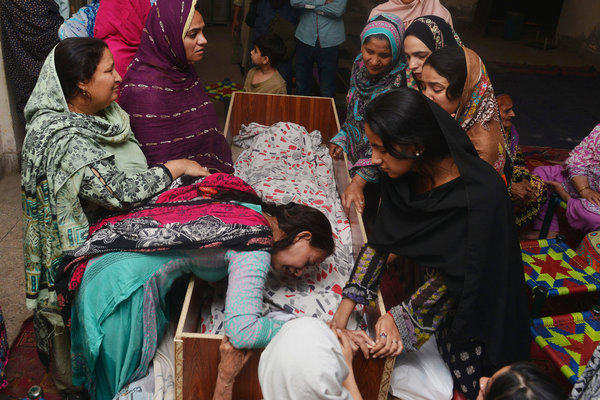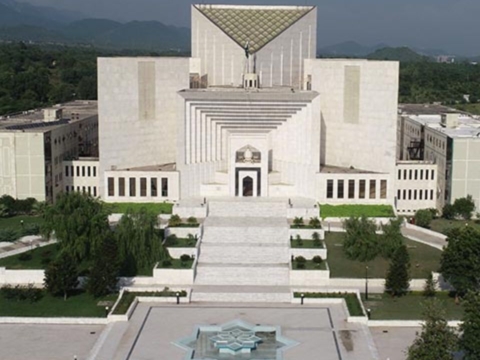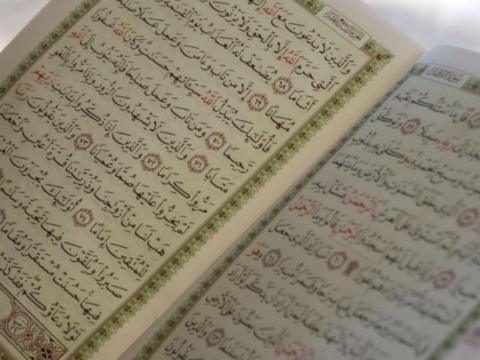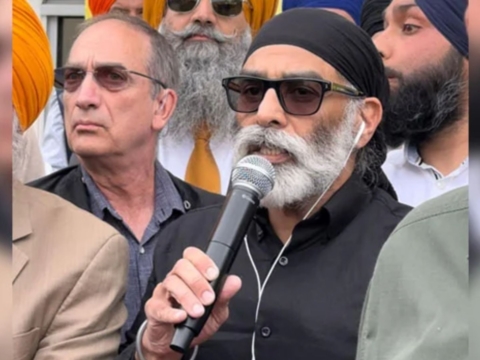
ISLAMABAD, Pakistan (Diya TV) — A suicide bomber set off an explosion near a children’s park on Easter Sunday in the eastern city of Lahore, killing at least 69 people and injuring another 300, rescue workers and officials said. The powerful blast was the third bombing in Pakistan in the last month alone, a reminder that even as the military has begun a fierce crackdown on extremists over the past two years, Islamist groups remain a serious threat.
Global heads of state, leaders and prominent personalities joined in the fight against terror on Sunday evening and Monday morning, extending their thoughts and prayers to the South Asian nation.
Indian Prime Minister Narendra Modi was among the first of world leaders to condemn the acts on Twitter, reportedly calling his Pakistani counterpart Nawaz Sharif. Several other leaders, including French President François Hollande and British Prime Minister David Cameron following suit.
Heard about the blast in Lahore. I strongly condemn it. My condolences to families of the deceased & prayers with the injured: PM
— PMO India (@PMOIndia) March 27, 2016
A la suite de l'attentat à Lahore au Pakistan, j'exprime au peuple du Pakistan toute la solidarité de la France dans ces moments douloureux.
— François Hollande (@fhollande) March 27, 2016
Translation: “Following the attack in Lahore, Pakistan, I express to the people of Pakistan the solidarity of France in these painful moments.”
I'm shocked by the terrorist attack in Lahore. My thoughts are with the families and friends of the victims. We will do what we can to help.
— David Cameron (@David_Cameron) March 27, 2016
Indonesia mengutuk keras serangan bom di Lahore. Teror atas nama apapun tidak dibenarkan. Dukacita mendalam utk korban, rakyat Pakistan -Jkw
— Joko Widodo (@jokowi) March 28, 2016
Translation: “Indonesia strongly condemns the bomb attack in Lahore. Terror in any name cannot be justified. Deep condolences to the victims and people of Pakistan.”
Canada condemns the deplorable bombing in Lahore, Pakistan. Our thoughts and prayers are with all those killed or injured. #LahoreBlast
— Justin Trudeau (@JustinTrudeau) March 27, 2016
Stateside, U.S. presidential candidates Hillary Clinton, Bernie Sanders, John Kasich, Donald Trump and Ted Cruz issued statements of their own denouncing the attack.
The evil that is radical Islamism struck in Pakistan today in a shocking display of savagery: https://t.co/IDjIGTVo8F
— Ted Cruz (@tedcruz) March 27, 2016
"Let us remember the victims … as we gather strength and resolve to defeat all who threaten our values." pic.twitter.com/vGOoWzQfLH
— John Kasich (@JohnKasich) March 27, 2016
We are grieving today for the families affected by the deplorable attack in Lahore. No one should ever fear taking their children to a park.
— Bernie Sanders (@BernieSanders) March 27, 2016
Another radical Islamic attack, this time in Pakistan, targeting Christian women & children. At least 67 dead,400 injured. I alone can solve
— Donald J. Trump (@realDonaldTrump) March 27, 2016
My prayers are with the victims of the horrific Easter Day attack in Lahore. Pakistan and all nations must confront & defeat terrorists. -H
— Hillary Clinton (@HillaryClinton) March 28, 2016
Notable voices from around the region, like Indian tennis star Sania Mirza and Nobel Peace Prize–winning education activist Malala Yousafzai. Mirza, who is married to Pakistani cricketer Shoaib Malik, opined the attack was “disgusting,” while Yousafzai said she was “devastated by the senseless killing of innocent people.”
What kind of a sick world are we living in ? Disgusting .. Heart and prayers go out for Lahore.. Ya Allah rehem 😔
— Sania Mirza (@MirzaSania) March 27, 2016
Malala's statement on the tragic #LahoreBlast today. pic.twitter.com/2xrSoGK6Yq
— Malala Fund (@MalalaFund) March 27, 2016
Seemingly the perfect scenario to test out its ‘Safety Check’ feature, Facebook activated the program for the eighth time this year. However, a bug caused many subscribers several thousand miles away from the bombing to mistakenly ask whether or not they were safe. Subscribers in New York, London, Washington D.C. and throughout the Bay Area received the alert, and took to social media, expressing their confusion, annoyance and in some cases, alarm, after erroneously receiving ‘Safety Check’ texts or notifications.
Some of the push notifications referenced an explosion without stating its location, leading some to worry an explosion had taken place near them that they weren’t aware of.
https://twitter.com/rachelzarrell/status/714119149509865473?ref_src=twsrc%5Etfw




